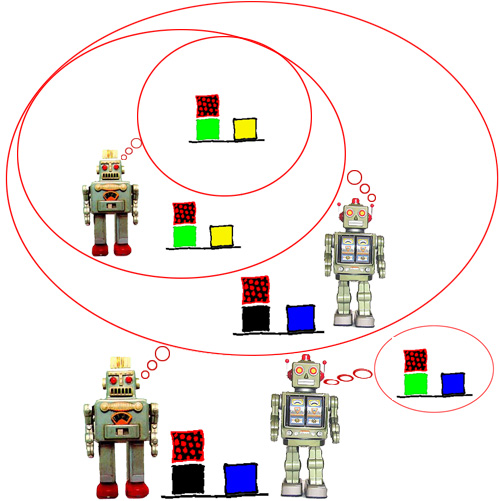Workshop on Formalised Social Intelligence18 December 2014, Technical University of Denmark, Copenhagen, Denmark |


The principle of double effect states conditions for ethically acceptable behavior when there are both positive and negative consequences (effects) at the intended outcome of an act. The act itself must be good or neutral, the negative consequence must not be intended whereas the positive must be, the negative consequence must not be a means to obtain the positive consequence, and the positive consequence must be proportionally preferable to the negative consequence. In this talk, I propose extensions of well-known formal models of consequentialist reasoning from game theory and stit theory. In particular, I suggest how to handle intentions, means-ends reasoning and proportionality of several positive or negative aspects of an event. I apply the formal methods in an analysis of a couple of thought experiments from ethics. I then discuss limitations of the models and of the principle of double effect.
This research is part of an ongoing project of providing a foundation for machine ethics through formal semantics and logic.
In this talk, I will discuss a recent body of work, within logic, that aims at modeling how beliefs (or opinions or preferences) may change in networks of agents that are prone to social influence. The work was initiated by Patrick Girard, Fenrong Liu, and Jeremy Seligman that proposed a simple model of “belief change in the community” and studied the long-term dynamics of this model. This model was later expanded by Zoé Christoff and the speaker to allow for more complex social phenomena such as pluralistic ignorance. Still, this model assumes that the agents themselves do not reflect on the fact that their peers are prone to social influence, as well. To remedy this lack of social intelligence, the model has recently been further extended by Zoé Christoff, Carlo Proietti, and the speaker, by introducing knowledge and learning into the picture.
The typical modus operandi applied by modelers working with Dynamic Epistemic Logic is to manually pick an update judged to be suitable based on the current state of the system. Hence the system level model is seldomly complete, lacking information about update choices in runs counterfactual to the chosen initial state.
In this talk, we will introduce a framework for formally defining sequential DEL models in a local, DEL-like fashion, useful in producing complete models. We call the introduced "meta-models" DEL machines. A DEL machine contains a set of rules by which the current epistemic state model gives rise to a choice of the next update to be applied. The rules are akin to knowledge-based programs and one-step planning problems. DEL machines work autonomously, picking the next update without the need for the modeler's intervention.
Once introduced and exemplified, we will compare DEL machines to an alternative approach to meta-model construction, namely DEL protocols. One aspect is heuristic, where we argue that DEL machines are less cumbersome to use in model construction. Secondly, the two approaches will be formally compared via representation theorems, linking the two frameworks by comparing the classes of epistemic forests they can generate.
The talk based on joined work with Suzanne van Wijk and Alexandru Baltag.
I use the tools of dynamic epistemic logic to reason about the process of belief change triggered by evidence and trust in a social network. We model the epistemic and doxastic states of agents, the strength of the agent's own private evidence, the strength of their friends' evidence, as well as the trust that the agents have in their friends (and in themselves) as a reliable source of information. Our formal approach brings together two ingredients: 1) the setting of 'justification models', a formal qualitative representation of an agents' beliefs, evidence and justification [1] and 2) the work on belief dynamics and doxastic influence in social networks [2]. In this talk we use results from dynamical systems to characterize the conditions of doxastic stability in the social network in the long run. This presentation is based on joint work with A. Baltag and F. Liu.
[1] Virginie Fiutek, Playing with Knowledge and Belief, PhD thesis, ILLC, 2013.
[2] Fenrong Liu, Jeremy Seligman, and Patrick Girard: Logical Dynamics of Belief Change in the Community, Synthese, Volume 191, Issue 11, pp 2403-2431, 2014.